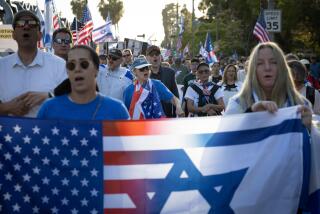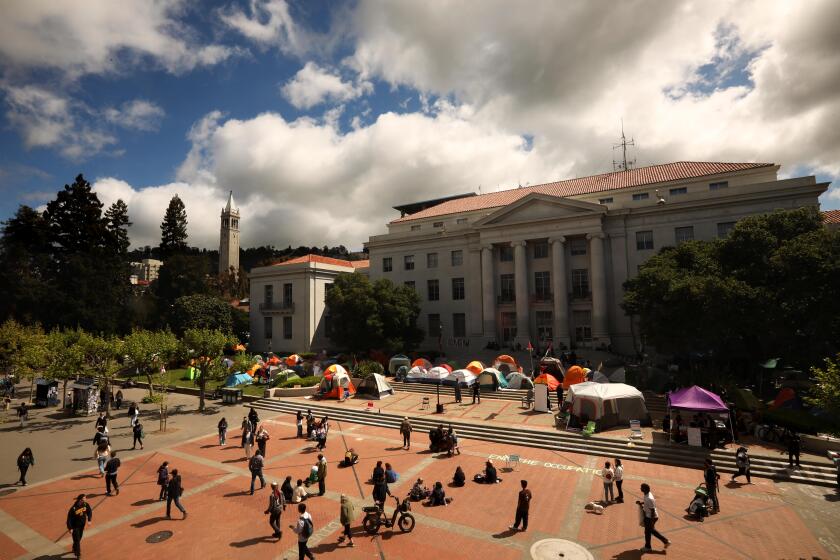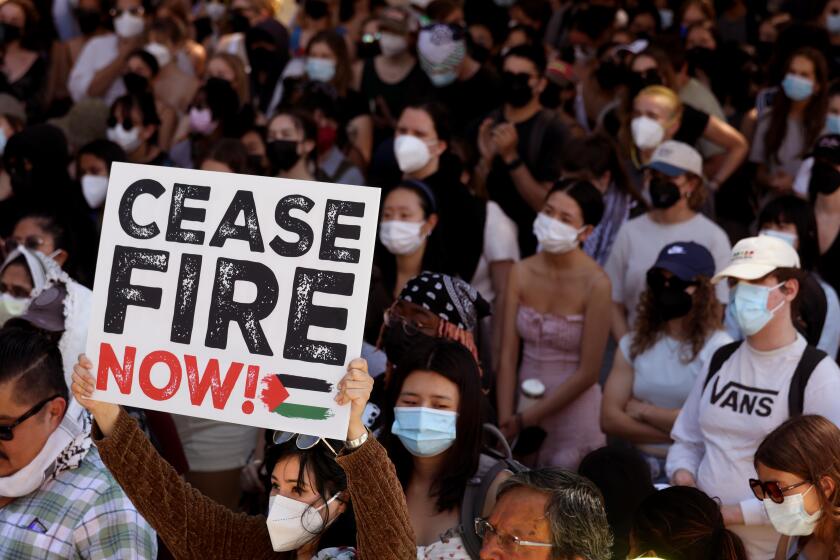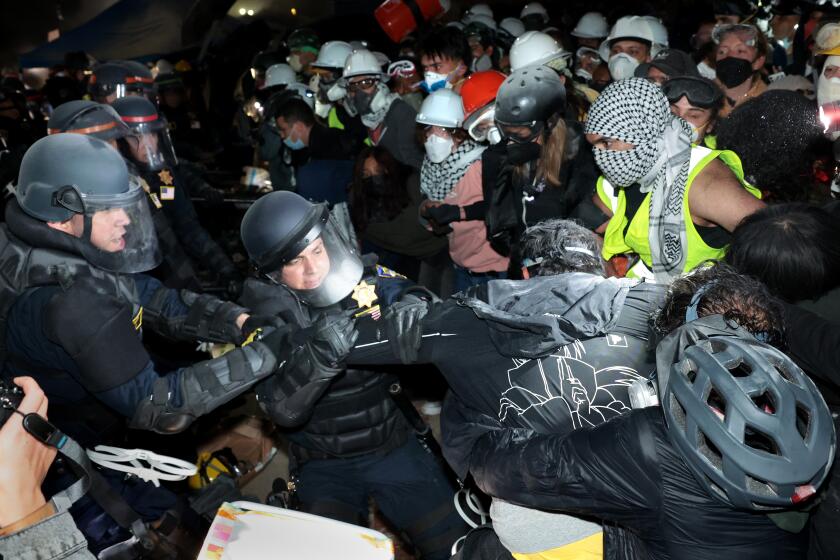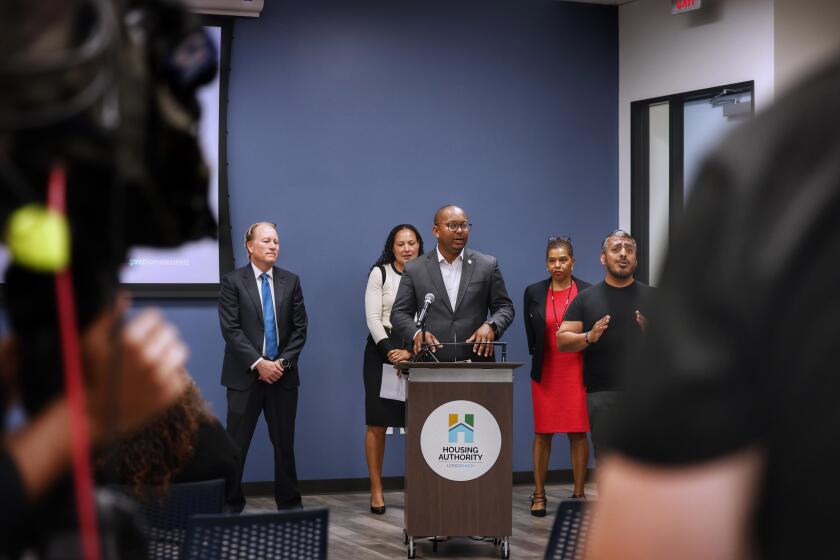Prescription for profiling
The Los Angeles Police Department wants to be trusted. It proposes to map the city and pinpoint Muslim communities that “may be susceptible to violent, ideologically based extremism,” but it also doesn’t want anyone to worry that it will pick on individuals or stereotype groups based on their religion or national origin. Rather, the department insists that it will “take a deeper look at the history, demographics, language, culture, ethnic breakdown, socioeconomic status and social interactions” that define L.A.
We recognize that today’s LAPD is a far cry from the one that turned its “Red Squad” against liberals in the early decades of the 20th century, that allowed soldiers to beat young Latino men in the 1940s during the so-called Zoot Suit Riots, that spied on political opponents through the 1960s and 1970s -- including such fringe figures as the mayor. It has evolved from the LAPD that antagonized blacks and Latinos through the 1980s with excessive force, gang sweeps and aggressive car stops, including the routine “proning out” of young men on the pavement. One victim of that practice was none other than Johnnie L. Cochran Jr., who would go on to make the LAPD wish it had treated him better.
We appreciate that today’s LAPD is more diverse and generally more restrained than it was in the generations that gave it a reputation for violence and racial animus -- helping to plunge the city into the riots of 1992, only to suddenly go limp and let the riots spread. Today’s LAPD is better at keeping public order, more effective at policing and more sensitive to the many communities it protects and serves. Still, just six months ago in MacArthur Park, it elected to broadcast dispersal orders in English only -- this, at an immigration rally -- then unleashed nonlethal projectiles and batons against a crowd that mysteriously refused to obey.
So pardon us if we are uncomfortable with the idea of the police department compiling maps of those it sees as susceptible to violence. That starts from the premise that race or nationality or religion defines susceptibility -- a prescription for profiling if ever we’ve heard one. And it puts judgments about race and religion in the hands of an agency that has hardly evidenced subtle thinking about those topics.
The LAPD under William J. Bratton, and Bernard C. Parks before him, has made great strides toward erasing a long and troubled history and toward restoring public confidence in this city’s police. But mapping Muslim L.A. smacks of the old LAPD, the one we’re happily leaving behind as we learn to trust the modern department.
More to Read
Start your day right
Sign up for Essential California for news, features and recommendations from the L.A. Times and beyond in your inbox six days a week.
You may occasionally receive promotional content from the Los Angeles Times.


